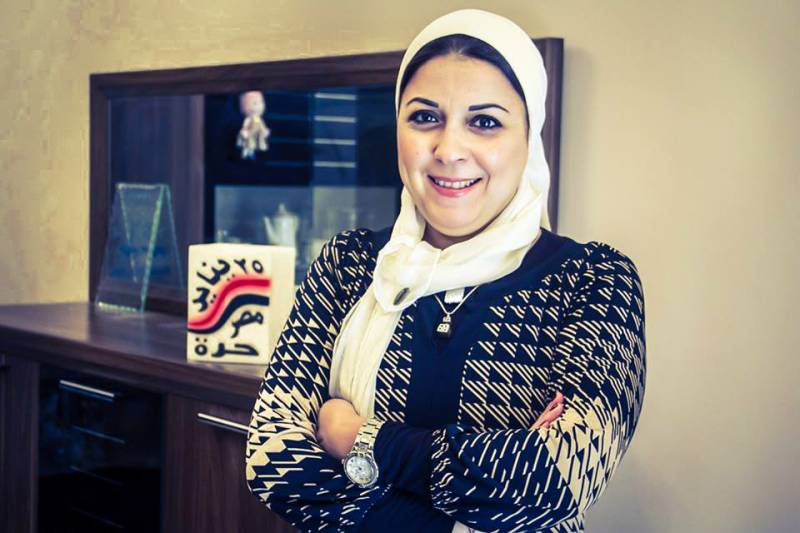In 10 days’ time a court in Cairo will hear an appeal by journalist Esraa Abdel Fattah against the iniquitous travel ban imposed on her two years ago.
She was prevented from leaving Egypt in January 2015 to take up a scholarship at Stanford university in California because a judge issued an order on the grounds that she had allegedly received foreign funding.
The mounting of her appeal is the result of assistance from London-based lawyers and an NGO, the Media Legal Defence Initiative (MLDI). It is backed by the press freedom organisation the Committee to Protect Journalists (CPJ). Two previous appeals were unsuccessful.
Abdel Fattah, who is credited with helping to ignite the Arab spring 2011 uprising that brought about the downfall of Hosni Mubarak, was nominated for a Nobel peace prize.
Known as the Facebook Girl because of her social media activism, she co-founded the April 6 Youth Movement that was the driving force of the demonstrations responsible for ending Mubarak’s 30-year rule.
Now she finds herself a victim of the authoritarian administration of Egypt’s current president, Abdel Fatah al-Sisi.
Other prominent bloggers and activists have had travel bans imposed after being accused of illegally receiving foreign funding.
But CPJ’s Middle East and north Africa programme coordinator, Sherif Mansour, says: “The Egyptian government’s accusations of illegal funding are clearly an excuse to clamp down on criticism and free expression.”
Abdel Fattah reports that she has been harassed by police and government supporters after posting a video on her Facebook page in April in which she criticised the Sisi government’s decision to cede control of two Red Sea islands to Saudi Arabia.
In September, a pro-government Facebook group published private pictures of Abdel Fattah, and accused of her indecency by not wearing a hijab.
In November, she announced her resignation from the daily newspaper al-Youm al-Saba’a, where she worked for years as a columnist and social media consultant. She believes her employer came under government pressure, saying she resigned after her managers asked her to take extended leave.
It has proved impossible for her to continue her work as a journalist due to intrusive surveillance in person and online. As the Washington Post reported, the Egyptian authorities have also cut off encrypted telecommunications services, such as the app Signal, upon which journalists and activists rely to communicate.
According to a statement issued by her legal team, an appeal has been filed on Abdel Fattah’s behalf with the UN’s special rapporteur on the promotion and protection of the right to freedom of opinion and expression, David Kaye.
It calls on him to take urgent steps to protect her and to call on the Egyptian authorities to comply with their international legal obligations.
The appeal was made jointly by the London law firm Howard Kennedy, Doughty Street Chambers and the MLDI. It refers to “multiple ongoing infringements of Ms Abdel Fattah’s right to freedom of opinion and expression, as part of the Egyptian authorities’ continuing clampdown on civil society and its stifling of critical voices”.
It points out that while she is subject to a travel ban Abdel Fattah’s freedom of expression is “wholly compromised, and she remains at constant risk of arbitrary arrest, detention, seizing or freezing of her assets, and other mistreatment.”
The Doughty Street barrister Caoilfhionn Gallagher said: “Esraa has long been a strong voice supporting free speech, democracy and women’s rights in Egypt, and for that she has been imprisoned, intimidated, threatened … We call on the Egyptian government to halt its campaign against Esraa and to lift the travel ban immediately.”
Courtesy The Guardian






